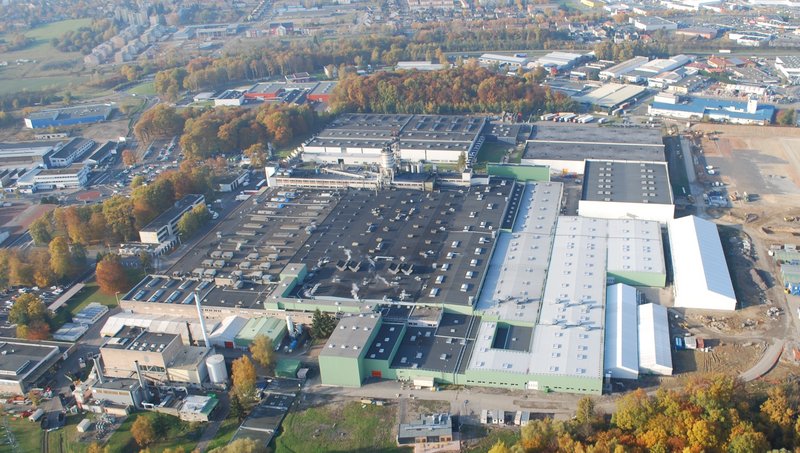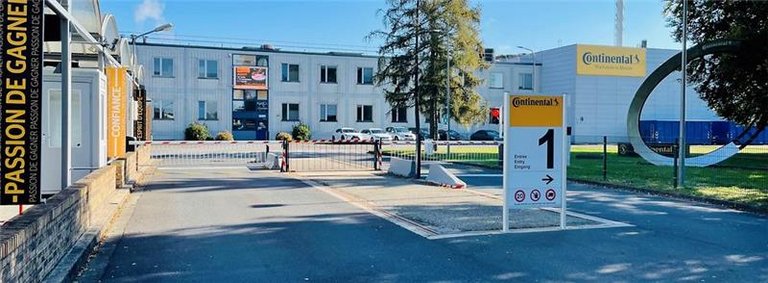Continental Tire Plant in Sarreguemines Receives ISCC PLUS Sustainability Certification
- Certified documentation of origin and use of more sustainable materials
- Tires group sector aiming for more than 40 percent renewable raw materials and recycled materials in its tires by 2030
- Jorge Almeida, head of Sustainability for Continental Tires: “The certification of our tire plant in Sarreguemines underscores our strong commitment to more transparency along the entire supply chain, while enabling the introduction of new and more sustainable materials”
Hanover, Germany, June 10, 2025. The Continental tire plant in Sarreguemines, France, recently received the International Sustainability and Carbon Certification (ISCC) PLUS sustainability certification. This globally recognized standard certifies that Continental meets specific documentation requirements relating to the use of renewable and recycled raw materials. It also confirms the completely transparent traceability of the raw materials used in the production process. Certification of the raw materials enables Continental to ensure the end-to-end traceability of materials from renewable and recycled sources. For the premium manufacturer, this is a further step on the way to more than 40 percent renewable and recycled materials in its tire products by 2030. In addition to the tire plant in Sarreguemines, the plants in Lousado (Portugal), Hefei (China), Puchov (Slovakia), and Korbach (Germany) are already ISCC PLUS-certified production sites of Continental Tires.
The certification was based on compliance with and documentation of certain processes for the mass balance of raw materials. The mass balance approach mixes fossil, renewable and recycled raw materials in existing systems and processes. The quantities used are tracked along the entire value chain and can therefore be allocated proportionately at any time. The mass balance approach enables Continental to gradually increase the proportion of more sustainable materials in its products. It ensures that the balance of certified more sustainable materials can be accurately reported.
“Step by step, we are working to ensure that all of our tire plants worldwide have the internationally recognized ISCC PLUS certification,” says Jorge Almeida, head of Sustainability for Continental Tires. “The certification of our tire plant in Sarreguemines underscores our strong commitment to more transparency along the entire supply chain, while enabling the introduction of new and more sustainable materials”.
“Receiving the ISCC PLUS certification is a strong recognition of our team’s commitment here in Sarreguemines,” says Didier Fuchs, head of the Continental tire plant in Sarreguemines. “We are continuously integrating more sustainable solutions into our production processes. Together, we are shaping a more resource-efficient and responsible future.”
Complete traceability of mass balance-certified materials
International Sustainability and Carbon Certification (ISCC) was established in 2010 as part of a multi-stakeholder initiative and is a leading global certification system aimed at promoting a traceable, sustainable, deforestation-free and climate-friendly supply chain. ISCC certifications are recognized worldwide and encompass sustainable agricultural biomass, biogenic waste and residues, non-biological renewable materials and recycled carbon-based materials. The development and implementation of various certification standards is ISCC’s tool for furthering its mission to mitigate climate change and bring greater traceability to global markets and supply chains.
As of this year, Continental has increasingly been using mass balance-certified materials in its tire production. Examples include synthetic rubbers made from bio-based and bio-circular raw materials or carbon black, which is produced in part using oil from circular processes.
The Continental tire plant in Sarreguemines
Founded in 1964, the Continental tire plant in Sarreguemines, France, employs around 1,300 people. Covering 323,000 square meters, the plant has the capacity to produce up to 8,5 million tires for passenger cars and light commercial vehicles annually. Since production began, the plant has manufactured over 330 million tires. A significant milestone in the plant's sustainable development was the implementation of the ContiRe.Tex technology in 2024. This technology uses PET bottles that would otherwise not be recycled. The bottles are spun into polyester yarn without any intermediate chemical steps, and the yarn can withstand the special stresses in a tire.

Henry Schniewind
Head of Global External Communications
Continental Tires




